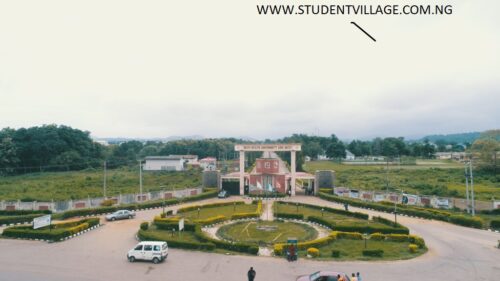Government Keypoints: Process of Decolonization; Decolonization refers to the gradual process through which former colonies gained independence from imperial powers. This historical transformation involved various factors such as rising nationalism, the emergence of influential leaders, the formation of nationalist movements and parties, and the impact of external factors.
Study more government keypoints here
Understanding the intricacies of nationalism, the roles of key leaders, the emergence of political movements, and the influence of external forces is essential to comprehend the decolonization process in different regions.
a. Nationalism – Meaning, Types:
Meaning of Nationalism: Nationalism is a political ideology that advocates for the self-determination and independence of a nation. It revolves around a collective identity, culture, history, and a desire for autonomy from external control.
Types of Nationalism:
- Ethnic Nationalism: Based on common ethnicity, language, or cultural heritage. Example: The movement for Indian independence from British rule, led by Mahatma Gandhi, largely rooted in Indian culture and history.
- Civic Nationalism: Focused on shared values, civic responsibilities, and citizenship, often irrespective of ethnic or cultural background. Example: The American Revolution, emphasizing democratic ideals and shared national identity.
b. Nationalist Movements – Emergence, Goals, Strategies:
Emergence of Nationalist Movements: Nationalist movements emerged in response to colonial subjugation, aiming to reclaim independence, advocate for self-governance, and promote socio-economic equality for indigenous populations. These movements often rallied people behind shared cultural identities and common grievances against colonial rule.
Goals:
- Sovereignty and Self-Governance: The primary aim was to achieve political autonomy and freedom from external control. This included establishing indigenous governments and institutions.
- Cultural Preservation: Protecting cultural heritage, languages, traditions, and values from erosion due to colonial assimilation policies.
- Socio-Economic Equity: Addressing socio-economic disparities, land rights, and improving living conditions for indigenous populations, often marginalized under colonial economic systems.
Strategies:
- Non-violent Resistance: Adopting peaceful protests, civil disobedience, and boycotts. For instance, Mahatma Gandhi’s Salt March in India mobilized thousands against British salt taxes, symbolizing the struggle for independence.
- Armed Struggle: Some nationalist movements resorted to armed resistance to challenge colonial authority. The Mau Mau Rebellion in Kenya against British rule is an example of armed opposition to colonial oppression.
c. Nationalist Leaders – Contributions and Impact:
Herbert Macaulay, Nnamdi Azikiwe, Obafemi Awolowo, Ahmadu Bello, Ladipo Solanke, Aminu Kano, J. S. Tarka, Tafawa Balewa, and others:
- Herbert Macaulay: Pioneering nationalist in Nigeria, advocated for Nigerian nationalism and played a key role in the Nigerian National Democratic Party (NNDP).
- Nnamdi Azikiwe: Instrumental in the formation of the National Council of Nigeria and the Cameroons (NCNC), advocated for Nigerian independence, and became Nigeria’s first president.
- Obafemi Awolowo: Leader of the Action Group in Nigeria, emphasized free education and economic empowerment.
- Ahmadu Bello: Championed the cause of Northern Nigeria’s interests and co-founded the Northern People’s Congress (NPC).
- Aminu Kano: Founded the Northern Elements Progressive Union (NEPU) advocating for the interests of the common people in Northern Nigeria.
- Tafawa Balewa: Prime Minister of Nigeria, led negotiations for independence and promoted unity among Nigeria’s diverse ethnic groups.
d. Emergence of Nationalist Parties:
- Nigerian National Democratic Party (NNDP): Founded by Herbert Macaulay, one of the first political parties in Nigeria advocating for self-governance.
- National Council of Nigeria and the Cameroons (NCNC): Led by Nnamdi Azikiwe, aimed at achieving Nigerian independence and unity.
- Action Group: Led by Obafemi Awolowo, focused on regional autonomy and economic development in Nigeria.
- Northern People’s Congress (NPC): Championed by Ahmadu Bello, prioritized the interests of Northern Nigeria and sought to represent the region in the Nigerian political landscape.
- Northern Elements Progressive Union (NEPU): Founded by Aminu Kano, focused on advocating for the common people of Northern Nigeria.
e. Influence of External Factors:
Colonial Policies and Reforms:
- Colonizing powers faced internal and external pressures, prompting reconsideration of colonial policies and introducing reforms. For example, the British introduced limited self-rule in India through the Government of India Act, 1935, in response to nationalist pressures.
- Global Movements and Influence: The rise of anti-colonial sentiments globally and support for self-determination from international bodies like the United Nations influenced the decolonization process. The UN’s declaration on decolonization encouraged colonies to seek independence.
Impact of World War II:
- World War II exposed colonial powers to economic strain and weakened their hold on colonies. Post-war sentiments emphasized the need for democratic freedoms, influencing the discourse on self-rule and independence.
- Shift in International Relations: After the war, former colonial powers faced a weakened global standing, creating opportunities for colonies to demand independence and self-governance.
The Cold War Influence:
- The Cold War rivalry between superpowers also played a role. Countries seeking independence exploited divisions between the United States and the Soviet Union to gain support for their cause.
Conclusion: The process of decolonization was a complex and multifaceted movement, involving the rise of nationalism, the emergence of influential leaders, the formation of political movements, and the impact of both internal and external forces. It reshaped the political landscape of many regions, leading to the eventual independence of numerous former colonies.







